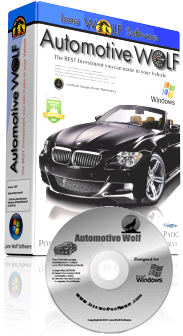|
Windows XP/7/8/10/11
|
 |
 No Risk 30 Day Free Trial |
HOME | INTRO | FEATURES | DOWNLOAD | PURCHASE | SCREEN SHOTS | REVIEWS | CAR CARE TIPS |
| Car Care Tips - Hybrid Maintenance |
| Hybrid cars have both an internal combustion
engine (typically gasoline) and an electric motor. The maintenance
requirements for hybrid cars are generally similar to those of
conventional gasoline-powered vehicles, but there are a few
additional considerations due to the presence of the electric
components. Here are some key maintenance tasks for hybrid cars: 1. Regular servicing: Follow the manufacturer's recommended maintenance schedule for oil changes, filter replacements, and overall inspections. Regular servicing is essential for optimal performance and longevity of the internal combustion engine. 2. Battery system maintenance: Hybrid cars have a high-voltage battery pack that powers the electric motor. While these batteries are designed to last for many years, it's important to periodically inspect and maintain them. Follow the manufacturer's guidelines for battery maintenance, which may include regular inspections, cleaning, and potentially replacing the battery if necessary. 3. Regenerative braking system: Hybrid cars use regenerative braking to recover and store energy that would otherwise be lost as heat. This system converts kinetic energy into electrical energy to charge the battery. While regenerative braking systems are generally reliable, they should be inspected during routine maintenance to ensure they are functioning correctly. 4. Cooling system: Hybrid vehicles typically have a separate cooling system for the internal combustion engine and the electric components, including the battery. It's important to maintain the cooling system to prevent overheating and ensure proper performance. Regularly check coolant levels, inspect hoses and connections, and follow the manufacturer's guidelines for coolant replacement intervals. 5. Tire maintenance: Proper tire maintenance is important for any vehicle, including hybrids. Check tire pressure regularly, rotate the tires according to the manufacturer's recommendations, and replace them when they are worn out. Well-maintained tires contribute to fuel efficiency and overall safety. 6. Electric motor and power electronics: While the electric components of a hybrid car are generally reliable, it's still important to inspect them periodically. During routine maintenance, technicians should check the electric motor, power electronics, and associated wiring to ensure there are no issues. 7. Brake system: Hybrid cars may have different braking systems, including regenerative braking and traditional hydraulic brakes. Inspect and maintain both systems to ensure optimal performance and safety. This includes checking brake fluid levels and replacing it when necessary, as well as inspecting brake pads and rotors for wear. Remember to consult the specific maintenance guidelines provided by the manufacturer for your hybrid car model. These guidelines will provide detailed information on recommended maintenance tasks, intervals, and any model-specific considerations. |
Easily Track and Manage Maintenance Schedules for any type of Vehicle by Time, Distance or Hours
30 Day FREE Trial
HOME | INTRO | FEATURES | DOWNLOAD | PURCHASE | SCREEN SHOTS | REVIEWS | Videos | FAQ | EULA | CONTACT US | CAR CARE TIPS |
Copyrightę Lone Wolf Software - www.lonewolf-software.com
Automotive Wolf Car Maintenance Software can also be found at :
Car Care | Contact Management | Home Inventory & Management | Backup | Text & Document Organization | Web Site Monitoring | ToDo Lists



